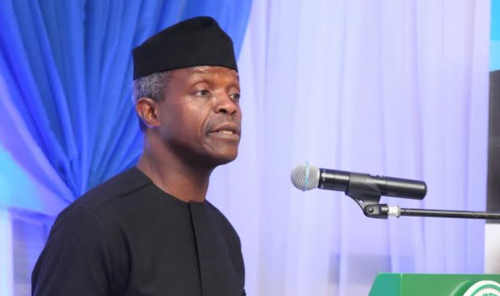
This nightmare ends. We wake up to a new morning in segments of the contraption (apologies to Obafemi Awolowo) that was once called Nigeria. The nation we used to know had broken up into three, four or ten pieces.
The night before, the Hausa/Fulani insisted that it feeds the Nigerians down south with its tomato, yams and cattle. He says without him, Nigeria will be hungry, and the tales of malnutrition currently being told by the United Nations will end up as mere child’s play. Agriculture is the lifeline of Nigeria not oil, he adds. Besides, we just found oil in Borno and Bauchi, and we would be fine without the rest of you.
The Igbo man had argued that he drives the nation’s industrial economy. Check the import and export records in Apapa, you will realise that most of the business is being done by Chukwuka, Chukwudi, Chidinma, and Ojukwu. He says he would be better off as the Industrial Republic of Biafra.
The Yoruba makes his case with pride. He regards his own southwest as the most educated portion of the Nigerian contraption. He speaks as of the fifth largest economy in Africa, Lagos. He goes ahead to say just one of its six-member states is responsible for over 20 percent of Nigeria’s gross domestic product (GDP). We can survive as Oduduwa Kingdom. The odds are in our favour.
For obvious reasons, the guy from the southsouth is calm. He does not join the argument, while the Hausa spoke he was on a call, speaking to the top management of Royal Dutch Shell. While the Yoruba man was quoting Bola Ige and Awolowo, filling the room with “big big grammar”, Mobil’s call was beeping on his other phone. After everyone has spoken, he clears his throat and says: “You guys really want to go ahead with this thing? You’d all lose and we will have all of the oil that fed Nigeria to ourselves. We will grease our palm, send our children to the best schools in the world, we will have too much money and too little problems.”
All parties involved agree to a break up. Nigeria splits.
THE WINNERS, LOSERS AND THE MORNING AFTER
Many Nigerians have made strong claims on why Nigeria should stay as one. Many of the angles have been political and some others emotional. Some have been impeccably logical, while some are just born out of emotional thoughts.
As a journalist, with a bias for business and development, I could not help myself. I had to see the whole agitation through an economic prism, and here are my thoughts.
The entire gross domestic product of sub-Saharan Africa stood at $1.498 trillion in 2016, according to the World Bank. Of this figure, $405.083 billion comes from Nigeria. That means Nigeria accounts for 27 percent — or nearly one third — of the economic size of sub-Saharan Africa. South Africa accounts for 19.68 percent of the region’s GDP. This is why we are called regional engines.
If Nigeria splits, that economic strength goes with it. None of the countries Nigeria split into will be an economic power in Africa, not to speak of the global scene. Immediately after that break-up, South Africa becomes Africa’s largest economy by far. South Africa has done nothing about the Nigerian break-up, but South Africa will be a big winner.
On foreign exchange: World Bank figures show that Nigeria’s GDP is majorly driven by the services sector, the agricultural sector and the less than 10 percent from the oil sector. But as at 2014, 95 percent of the country’s foreign exchange earnings were derived from the oil sector. As at 2016, based on the government’s current diversification drive, that number had fallen to 90 percent.
“As we all know, this country depends for over 90 percent of its foreign exchange earnings and an equally huge proportion of government revenue on the oil resources in that region,” Acting President Yemi Osinbajo said, speaking of the southsouth.
Hence, the rest of Nigeria is responsible for 10 percent of foreign exchange earnings. In today’s Nigeria, based of foreign reserves figures, that translates into a foreign exchange reserves of $3 billion. This will put us in the league of Mozambique, Papua New Guinea, and Congo, who all have smaller populations. Other regions outside the southsouth would not have enough for international trade. In the meantime, the broken Nigeria will be an economic lake — nothing flows out of it, and very little flows into it. That Nigeria will stink, economically.
What happens to the currency? Bonds? The Nigerian Stock Exchange? And other financial institutions owned by the Nigerian nation? Who runs the central bank? It will all end up as an economic holocaust of sort.
Time and chance will not permit me to look through other economic indices and how it will affect Nigeria, but one thing I know for sure is: there is no scenario where a majority of Nigerians win.
As Osinbajo said, “the truth is that our nation and national unity is worth preserving and protecting. We are the pre-eminent power in Africa today in terms of population, size of our markets, natural resources and economy.
“We are a factor in the geopolitics of the world and no one can ignore a nation-state that is home to one in every four black persons. Smaller is weaker, not stronger today.”
On the morning after a break-up, those who called for division will have more regrets than they can understand; here, there are no winners.
Follow us on twitter @jimidisu
END

Be the first to comment